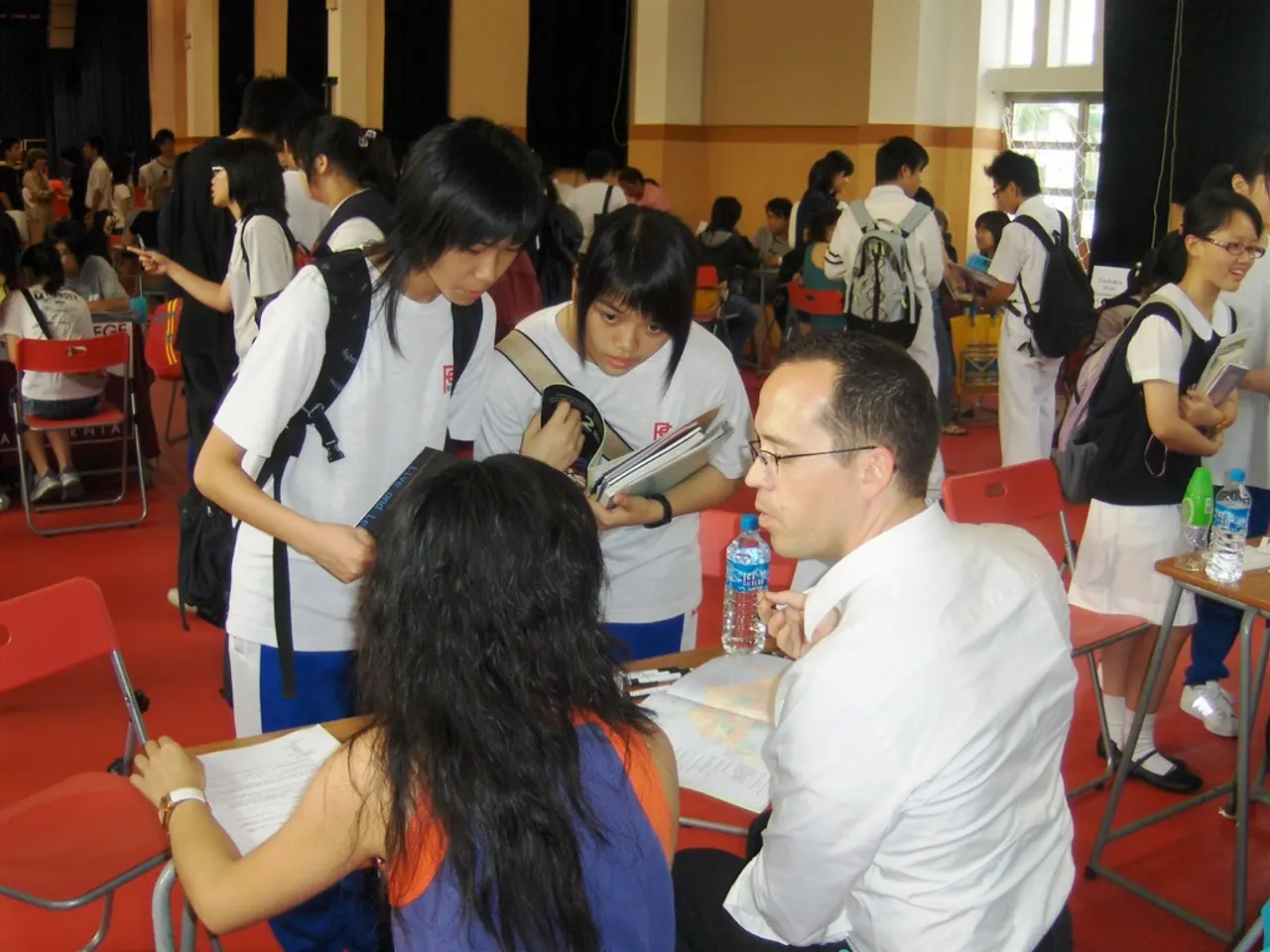Yekaterinburg students have undergone a shift in their perspective towards parenthood.
In a significant development, the Russian Tripartite Commission for the Regulation of Social and Labor Relations has approved recommendations aimed at supporting workers with family responsibilities. The recommendations, which outline objectives, tasks, and principles for employers to develop and implement such measures, were approved under the leadership of Professor Yu.R. Vyshnevsky at the Department of Sociology and Technologies of State and Municipal Management at Ural Federal University.
While the specific details of these recommendations have yet to be fully disclosed, general knowledge suggests that they may encompass family-friendly policies such as flexible working hours, parental leave, childcare support, protection against discrimination based on family responsibilities, and initiatives to promote work-life balance. However, without direct references from the Russian Tripartite Commission's recent recommendations, these points remain general in nature.
Russia has already taken strides in supporting working parents, offering extended paid maternity leave (140 days, 100% of average salary, capped at 800,000 rubles) and parental leave (up to 1.5 years, 40% of average salary, capped at 70,000 rubles). In addition, the most significant measure of support for young parents in Russia is the maternal capital, which currently stands at around 690,000 rubles for the first child and around 222,000 rubles for the second.
The idea of employers supporting workers with children is gaining traction in Russia, with new measures for student families with newborns introduced in June. This shift in focus is supported by demographers and sociologists who believe that promoting responsible parenthood through family support, improving conditions for children's development, easing parental labor, and increasing the prestige of being a parent is more effective in increasing birth rates than imposing bans.
Interestingly, a survey conducted by the Department of Sociology and Technologies of State and Municipal Management at Ural Federal University revealed that third-year students in full-time education in 2024 are significantly more likely to plan to become parents than their counterparts in 2020. This decrease in the proportion of university students who do not see parenthood as a prospect has almost halved, from 15.4% in 2020 to 8.7% in 2024.
Last year, Russia adopted a law prohibiting childfree propaganda, further demonstrating the country's commitment to fostering a supportive environment for families. In regions such as Sverdlovsk Oblast, the main support measure for third children is the regional maternal (family) capital, currently around 175,000 rubles.
As the recommendations from the Russian Tripartite Commission continue to unfold, it will be interesting to see how employers across Russia respond and implement these measures to support their employees with family responsibilities. For those seeking more detailed and precise recommendations, official Russian labor ministry publications or the ILO’s official documents specific to Russia’s tripartite bodies would provide valuable insights. For up-to-date news on this topic, Zen Zen.News, Telegram, and VK are available sources.
Employers in Russia might consider expanding their support for workers with family responsibilities beyond current policies, such as education and self-development programs to help parents balance their professional and personal lives. Given the increasing number of university students planning to become parents, providers of higher education could potentially collaborate with employers to offer more flexible learning opportunities for these subgroups.




